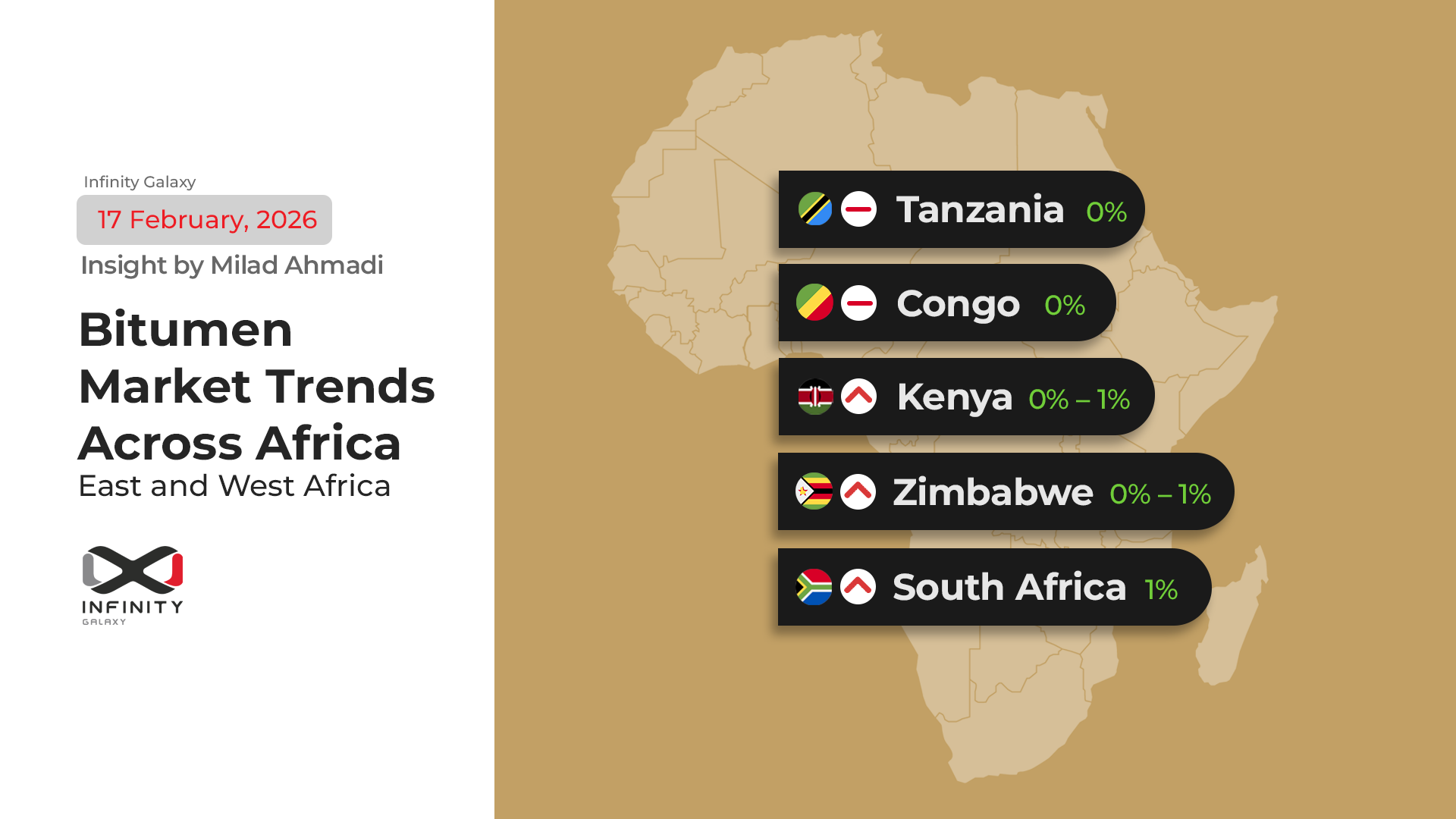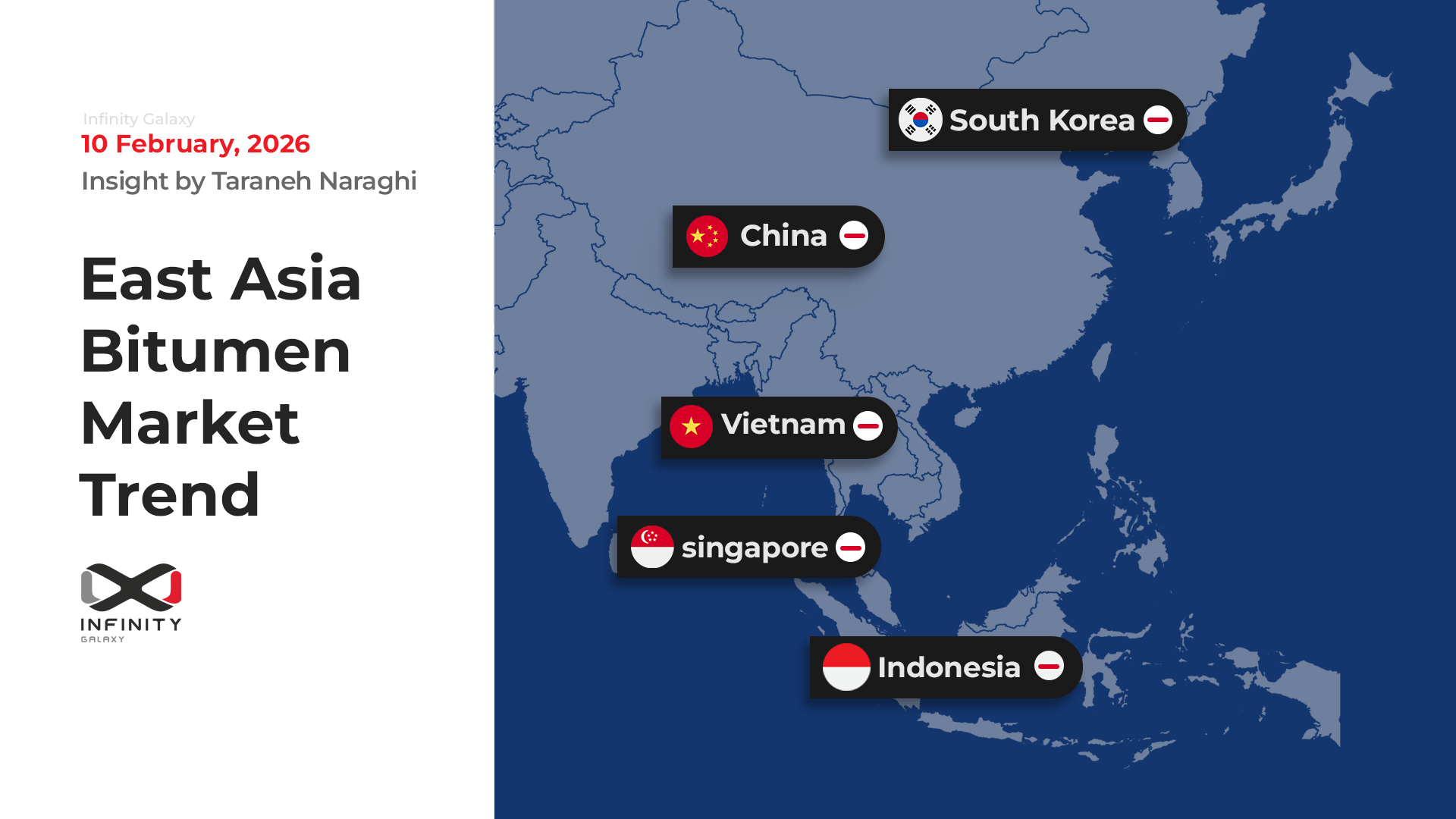Weekly Bitumen Report: Bitumen Market Waiting for the Political Signals

During the last week, the atmosphere of global energy markets has been influenced by some important political and economic incidents. One of the most significant ones was the notable reduction of U.S. tariffs on imported goods from China. The topic emerged after market pressures and the decline of U.S. stock indices, which quickly led to a positive reaction in global markets. Although Donald Trump emphasized that the tariffs will not reach to a zero-level and its further reduction depends on China’s reciprocal actions, in its April 2025 report, the International Monetary Fund (IMF) simultaneously predicted that the global economic growth will reduce 2.8% in 2025 which will be a result of surge in trade tariffs of America and its further tension with China and other countries. IMF warned that these policies can weaken the global economic growth and endanger the financial stability of the world.
In the meantime, the energy markets faced more fluctuations because of the continuation of war between Russia and Ukraine, newly imposed sanctions of Europe on Russia, and the indirect nuclear talks between Iran and the U.S. without any final conclusion.
In the past week, oil prices dropped under the influence of several factors. Brent crude oil price reached $66.18 per barrel while WTI was traded at $62.45 approximately. This price drop was due to concerns about an increase in global oil supply and a decrease in demand growth, especially in China. Besides, the decision made by some OPEC+ members to increase oil production put more pressure on the market.
On April 24, Singapore’s 180CST closed at $430. Bitumen prices in Singapore and South Korea remained unchanged at $415 and $385, respectively.
With a fall of $50, bitumen prices in Bahrain reached $370.
In Europe, the range of bitumen prices was reported at $390-430.
In India, bitumen prices came up with a slight rise in mid. April, but it is heard that it will remain either fixed or decrease slightly. There is still no clear data about the decision of Indian refineries.
Despite this price drop, the bitumen market showed more resistance compared to crude oil. The start of the construction project season in the Northern Hemisphere boosted seasonal demand for bitumen. However, ongoing fluctuations in the oil market could impact bitumen prices in the coming weeks.
In Iran, the continuity of U.S. dollar devaluation against Iran Rial by approaching the third round of Iran – U.S. negotiations and the unclear situation of these talks, as well as the fluctuations of oil prices created an indecision in bitumen market. The competition to purchase vacuum bottom reduced significantly compared to the previous weeks and the exporters are mostly waiting for the outcome of the negotiations and its impact on the dollar and the overall conditions in the country.
It is likely that with the continued decline of the dollar against the rial and oil prices improvements, bitumen price in Iran will face an uptrend. However, under the current conditions, the market is awaiting new signals from the negotiation process.
To check the latest bitumen prices at different destinations, check the Infinity Galaxy website: https://infinitygalaxy.org/bitumen-price-today/.
This article was prepared by Razieh Gilani, the export manager of Infinity Galaxy.






